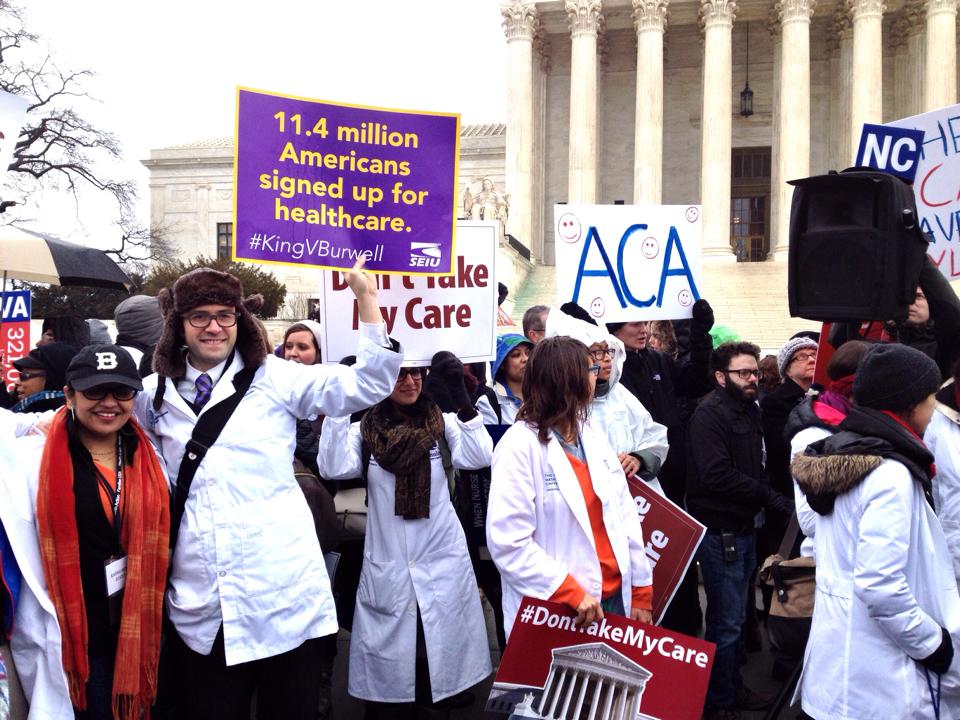As the number of staff jobs in journalism shrinks, many reporters are turning to freelancing and either need a new health insurance plan immediately or after stopgap coverage such as COBRA runs out.
Long-time freelancers covered under a spouse’s health insurance may find themselves without insurance if a spouse has retired or suffered a job loss. In other cases, freelancers with an individual or family plan may want to shop for something better.
As AHCJ reported in January, enrollment in marketplace plans governed by the 10-year-old Affordable Care Act (ACA) has never been higher. This is partly because the Biden administration and Congress made the plans more affordable through increased income-based subsidies for premium payments under the American Rescue Plan of 2021 and Inflation Reduction Act of 2022.
To help freelancers understand their commercial health insurance options, we interviewed healthinsurance.org health policy analyst Jenny Chumbley Hogue. The site is a source for consumer information that is affiliated with, but acts independently of, a licensed insurance agency. We also pulled information from government websites.
What are ACA-compliant health insurance plans?
ACA-compliant plans are what’s called guaranteed-issue; premiums cannot vary based on a person or family’s medical history, according to Verywell Health. This is important for any freelancer looking for coverage because so many people have chronic conditions like asthma, diabetes, heart disease or cancer. ACA-compliant plans must also cover “essential health benefits,” as healthinsurance.org explains.
Expected cost
More than three-quarters of consumers who signed up at healthcare.gov, the federal marketplace for ACA-compliant health insurance, found options for plans that had monthly premium rates of $10 or less after subsidies, according to the U.S. Department of Health and Human Services.
In most states, consumers use the federal website to enroll; some states, such as California, Colorado, Massachusetts, Minnesota, Massachusetts and New York, run their own websites. Consumers can select their state at healthcare.gov and be directed to the appropriate enrollment site.
The American Rescue Plan removed the so-called subsidy cliff in 2021, an income threshold that led to many losing their entire premium subsidy. The Inflation Reduction Act extended the cancellation of the subsidy cliff through 2025.
The sliding scale in place now means, for example, that some couples whose income is in the six figures are subsidy eligible, depending on age, according to Hogue.
Once insured, out-of-pocket costs for health care will depend on the consumer’s location and their chosen health insurance plan, said Hogue, who owns a health insurance agency in Texas.
The federal government does not require consumers to purchase ACA-compliant health insurance through federal or state marketplaces. Therefore, freelancers can buy commercial health insurance outside of the marketplace.
While these “off-exchange” plans are still ACA-compliant — meaning they are required to cover “essential health benefits” just like marketplace plans — they differ in that buyers cannot receive premium subsidies or cost-sharing reductions.
Beware of non-ACA-compliant plans
Consumers also have the option to buy plans that are not ACA-compliant – meaning the coverage does not follow the Affordable Care Act’s regulations for major medical health insurance.
Non-compliant plans are not required to include coverage of ACA’s designated essential health benefits. For example, they do not have to pay for mental health or pregnancy care; they may have limited benefits; they may not have an out-of-pocket maximum; and they do not pay for free annual wellness benefits, said Hogue.
Examples of non-compliant plans include short-term health insurance, fixed-dollar indemnity plans, limited-benefit policies, critical illness insurance and medical discount plans.
In addition, these plans can do underwriting, meaning they can question consumers about their health and pre-existing conditions at sign-up — something ACA-compliant plans are not allowed to do. Then, based on the answers, these plans can increase the consumer’s premium rate or deny coverage.
When a policyholder files a claim, Hogue said, many times these plans “don’t reject the claims; they put them on hold while they review your medical records to make sure you didn’t lie to them.” After they review the policyholder’s medical records, they could reject the claim or raise the policyholder’s premium rate.
Hogue receives calls from people who say they do not want Obamacare, despite the advantages of the marketplace plans.
“I live in a red state,” she said. “I’m just going to leave it at that.”
Getting help
While it is possible for consumers to navigate health insurance options on their own, Hogue strongly suggests they “find a trusted advisor.” Freelancers can ask friends, colleagues or a financial advisor for a recommendation of an insurance agent or broker.
“Look for somebody who has more than three years experience,” Hogue said. “The reason I say three years is that 93% of people who start an insurance agency leave before the three-year mark.”
Freelancers can also type in their ZIP code at healthcare.gov and generate a list of trained and certified assisters, agents and brokers to help with the application and enrollment in a marketplace health plan. States with their own enrollment platforms generally also have a webpage where consumers can enter a ZIP code to generate a list of local enrollment assisters, Hogue commented.
Assisters are often nonprofits or hospitals and are required to provide fair, impartial and accurate information. Agents and brokers are generally paid by insurance companies whose plans they represent, and are required by states where they are licensed to act in the consumer’s best interest. Agents usually represent only one insurance company while brokers sell the full range of marketplace plans.
Enrollment deadlines for marketplace plans
From healthcare.gov:
- Nov. 1: Open enrollment starts for health coverage for the next plan year. Coverage can start as soon as Jan. 1.
- Dec. 15: Last day to enroll in or change plans for coverage to start Jan. 1.
- Jan. 1: Coverage starts for those who enroll in or change plans by Dec. 15 and pay their first premium.
- Jan. 15: Open enrollment ends.
- Feb. 1: Coverage starts for those who enroll in or change plans Dec. 16 through Jan. 16 and pay their first premium.
It is possible to enroll outside of the open enrollment period due to a life event, such as losing health coverage, moving, getting married, having or adopting a baby or if household income drops below a certain amount.
Estimating income
“If you’re self-employed, one of the hardest parts of the marketplace is that in November, you’ve got to determine your income for the next year,” Hogue said.
If you underestimate your income, you’ll have to return part of your insurance subsidy to the IRS when you file that year’s tax return. “But it also works in reverse,” she added. If you overestimated your annual income, the IRS will give you the amount of the subsidy that you didn’t rightly receive.
What else freelancers should know
“If you have a doctor who is critical to your happiness, call the office and ask, ‘Do you take any marketplace plans?’” Hogue advised. “Don’t rely on the doctor’s website; do not rely on the insurance company’s website. It’s not anybody’s fault, but those are consistently out of date.”
“If you haven’t looked at health insurance options in a while, it may be time to take a look again,” Hogue noted. Much has changed in the past several years.
Freelancers should note one more concern about ACA coverage: Some enrollees in ACA plans have been switched to others plans without permission, potentially leaving them unable to see their doctors or fill prescriptions, as Julie Appleby reported for KFF Health News. Also, some face IRS bills for back taxes, she added.









